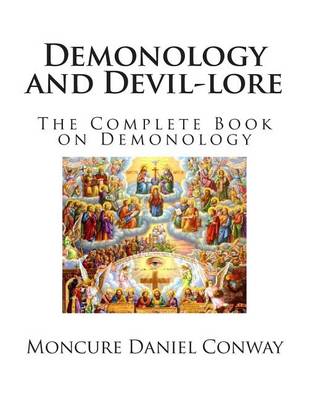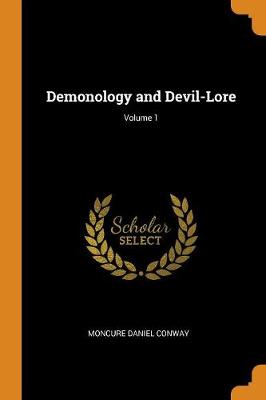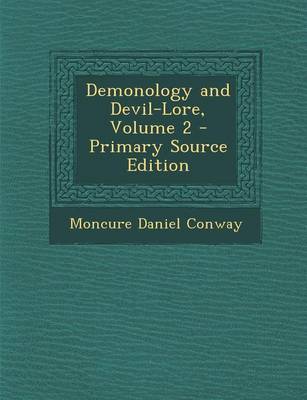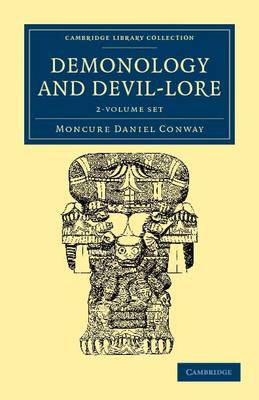Cambridge Library Collection - Spiritualism and Esoteric Knowledge
1 primary work • 4 total works
Volume 2
Moncure Daniel Conway (1832-1907), the son of a Virginian plantation-owner, became a Unitarian minister but his anti-slavery views made him controversial. He later became a freethinker, and following the outbreak of the Civil War, which deeply divided his own family, he left the United States for England in 1863. He gained a reputation for being the 'least orthodox preacher in London', and was acquainted with many figures in the literary and scientific world, including Charles Dickens and Charles Darwin. In this two-volume work, first published in 1879, Conway draws from examples across the world to discuss the origins and decline of beliefs in demons. In Volume 2, he discusses the role that the Devil plays in Christianity (including analysis of the story of the Fall of Man), and that similar figures play in other religions, offering the view that such figures are personifications of certain human attributes.
Moncure Daniel Conway (1832-1907), the son of a Virginian plantation-owner, became a Unitarian minister but his anti-slavery views made him controversial. He later became a freethinker, and following the outbreak of the Civil War, which deeply divided his own family, he left the United States for England in 1863. He gained a reputation for being the 'least orthodox preacher in London', and was acquainted with many figures in the literary and scientific world, including Charles Dickens and Charles Darwin. In this two-volume work, first published in 1879, Conway draws from examples across the world to discuss the origins and decline of beliefs in demons. In Volume 1, he classifies types of demon and argues that the various types are personifications of the main obstacles to 'primitive man': he finds in mythology across the world examples of animal demons and demons of hunger, fire and disease.
Moncure Daniel Conway (1832-1907), the son of a Virginian plantation-owner, became a Unitarian minister but his anti-slavery views made him controversial. He later became a freethinker, and following the outbreak of the Civil War, which deeply divided his own family, he left the United States for England in 1863. He gained a reputation for being the 'least orthodox preacher in London', and was acquainted with many figures in the literary and scientific world, including Charles Dickens and Charles Darwin. In this two-volume work, first published in 1879, Conway draws from examples across the world to discuss the origins and decline of beliefs in demons. In Volume 2, he discusses the role that the Devil plays in Christianity (including analysis of the story of the Fall of Man), and that similar figures play in other religions, offering the view that such figures are personifications of certain human attributes.
Moncure Daniel Conway (1832-1907), the son of a Virginian plantation-owner, became a Unitarian minister but his anti-slavery views made him controversial. He later became a freethinker, and following the outbreak of the Civil War, which deeply divided his own family, he left the United States for England in 1863. He gained a reputation for being the 'least orthodox preacher in London', and was acquainted with many figures in the literary and scientific world, including Charles Dickens and Charles Darwin. In this two-volume work, first published in 1879, Conway draws from examples across the world to discuss the origins and decline of beliefs in demons. In Volume 1, he classifies types of demon and argues that the various types are personifications of the main obstacles to 'primitive man'. In Volume 2, he discusses the role that the Devil plays in Christianity, and that similar figures play in other religions.



